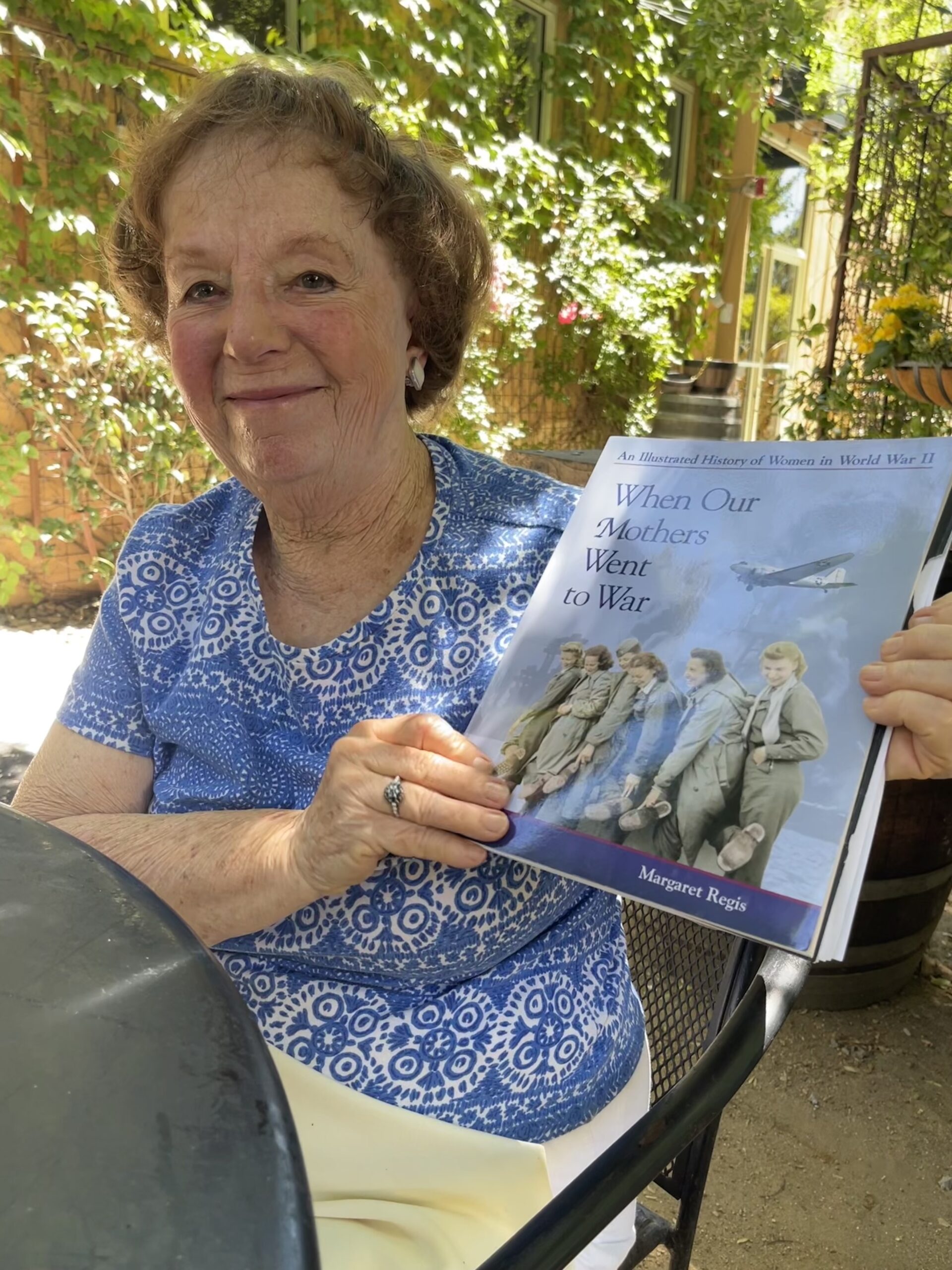Carolyn Martin has always been drawn to women’s World War II-era stories. She’s hosted me twice for book club gatherings early in the process, which prepared me for the historical topics readers want to talk about. When she learned I was investigating world-class female athletes in 1939, she pointed me in the direction of The Divine Miss Marble: A Life of Tennis, Fame and Mystery, Robert Weintraub’s biography of Alice Marble, which wound up inspiring Tomboy’s Tommie O’Rourke. When I told her I was researching women with military jobs in WWII for my work in progress, she shared a pile of books and notes on that very topic.
Then, over lunch at Matteo’s, I learned that Carolyn earned a Master’s degree in U.S. History about sixty years ago from the University of Washington. Her family seriously advised her against that course of action, as it would surely lead to a failure to find a husband, not unlike the fear of women in WWII that joining the war effort would unsex them. (The man Carolyn did marry was a student in her history department. Turns out he liked how smart she was.)
Since her master’s program rarely dwelt on women in history, Carolyn continued her education independently in the decades later, even attending the National Women’s History Project Workshop. She has since created women’s history events for faculty, staff and students, and taught U.S. History in community colleges. Her influence continues to grow. If you’ve read the Jane Benjamin books, you are no doubt at least a little bit influenced by Carolyn Martin, a woman who wasn’t much limited by prevailing expectations for women in the nineteen-sixties:)

Leave A Comment